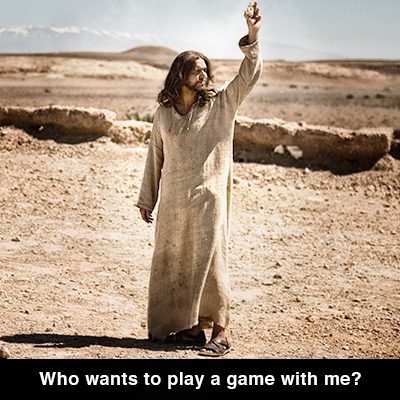And here we are at the end of all things. No, wait a minute, it’s just the end of our series on Amy Chua’s “Why Chinese Mothers Are Superior.” Chua, by the way, has responded to some reader questions at the Wall Street Journal, and is far less irritating than the voice that came through in the original piece (which was excerpted from her book). Still, I am responding to the initial article. Some Tiger Moms (and Dads) have responded approvingly to the article, and are happy to claim superiority for the ultra-strict parenting practices it promotes, so it remains worth addressing. Also, I’m grateful the article has opened up a conversation about what “western” and “eastern” parents can learn from one another.
Part 1 of this series explained the many and deep faults in the way Chua’s article framed the issue; Part 2 explored what “western” parents might learn from Tiger parenting, and this third and final part considers what the Tigers might learn from those crazy westerners. And this is simply one man’s opinion, based on pretty thorough familiarity both with Caucasian-American and Asian-American communities:
1. There’s more to education than math and music. The Tiger Mom described by Chua expects her children to get the best grades in “every subject except gym and drama.” To which my first reaction is: Are her daughters so lazy they can’t excel in gym and drama?! And my second reaction was: even though the Tiger’s Child is expected to earn an A+ in English and an A+ in Math, the Tiger Child knows which one is considered truly important. As a hint, I’ll just say that it starts with an “M” and ends with an “ath.” Tiger Children are expected to get an A+ in English for the sake of admissions processes; they’re expected to get an A+ in Math (and Chemistry and Physics and Economics) because these are the really important disciplines that they will need for their careers in medicine, engineering or investment banking. (Remember, we’re talking about the extreme here.)
But let me back up. Yesterday I explained that my parents, compared to Tiger Parents, were relatively uninvolved in my schoolwork. And yet my first 18 years of life offered me a fantastic education. I got to try everything my heart desired, from sports and instruments to arts and other after-school activities. We traveled around the country every summer, so I saw the Grand Canyon and Yellowstone and learned how to fish and camp. I saw some television and movie shows that weren’t worth the time, but I saw others that were moving and profound and magnificent. My parents understood that an essential part of education is enrichment, expanding your children’s horizons and exposing them constantly to new experiences and new challenges.
There are two particular points I want to make here: (i) Play really is a profound learning tool. In the aftermath of Chua’s article, one author (I can’t find the link) made a fascinating argument that what has allowed America to succeed is the ability of Americans to organize into self-structuring groups to achieve common interests. Play develops curiosity and creativity, social and team skills, and (lest we forget) the ability to enjoy recreation. Although it has received little reflection in the church of late, recreation is a richly theological category, and it is a part of our purpose and fulfillment.
(ii) Sports are indispensable shapers of character. I don’t regret a single moment I spent on sports: from soccer and baseball as a child, to gymnastics and pickup neighborhood games of basketball and football as a young man, to ultimate frisbee and over-30 baseball later in life. I actually feel a great sense of sympathy for the Asian-American youth I have seen, especially males, who were not allowed to put any time into sports. Many told me that they felt a sense of discomfort around non-Asian males, felt uncomfortably close to the (inaccurate) stereotype of the wimpy Asian male, and therefore felt less confident around members of the opposite sex, for this very reason. My gymnastics–for which my parents made extraordinary sacrifices–was one of the most important educational tools in my life. I cannot imagine the person I would be now apart from it. And my parents’ investment in gymnastics was an investment in my education in another sense, too, because it paid for my education at Stanford (and the secret is, once you’re inside the academic elite, it’s not that hard to keep on the inside, if you put forward a bit of effort).
And (iii) don’t forget your childrens’ spiritual education. The most important education you can give your children is in matters of faith and character–and when it comes to matters of faith and character, the best teacher is a good example. I saw too many parents at Princeton Christian Church who brought their children to church simply because they wanted their children to be obedient; and whereas they walked over their children’s academic education like a hawk, never leaving things in the hands of the teacher alone, they were perfectly happy to hand over the most important part of their children’s education into the hands of the youth pastor. Children who could tell you the capitals of the every state and the square root of pi to twenty digits scarcely knew their way around the Bible and knew nothing of Christian history and theology; and too often they failed to give their children an example of faith and character they could imitate.
My parents are educated and intelligent, and gave me (I think) an exceptional education in matters of faith and character. It’s infinitely more valuable than my Harvard Ph.D. But the wonderful thing is: even if you’re not an educated parent yourself, and even if you haven’t the time or resources to supply your children a first-rate scholastic education, it’s trite but true: you can teach your children all the most valuable lessons yourself. It’s easy to drill an SAT-prep test; it’s tough to show love and grace and humility and integrity over the course of 18 years. But everyone can do it, and Tiger Moms are off their rocker if they think straight-A’s and scholarships are more important.
2. Better to pass on a passion than to pass on a practice. Teaching someone how to perform a particularly difficult piano maneuver is not the same as teaching her to love the piano. And drilling someone until they can excel at X is not the same as teaching them to want, deep in their bones, to excel at X.
One example: my Chinese-American wife was forced to take piano lessons through much of her childhood. Due to my gymnastics career, I never took more than two weeks of an instrument. I actually regret that. She regrets all the hours spent in piano classes. Now, I listen to classical music almost constantly, because my mother (in particular) passed along her love for classical music. My wife rarely listens to any music, and never to classical. She has no interest whatsoever.
Or take another example. Although my parents did not rigorously supervise my schoolwork, they passed along a love of reading and learning. In junior high, largely unsupervised, I put little effort into my schoolwork; actually, I was more of a gifted-class clown. By the time I started high school, however, I was a voracious reader of fiction, philosophy, literature, theology, science, politics, pretty much everything. If my parents had enforced a strict regimen in my junior high years, would I have developed that passion? Quite possible not. Many of the students who got straight-As when I was goofing around ran out of steam. Propelled by a genuine love of reading and learning, I went through high school and then 14 years of undergraduate and graduate programs — and loved every minute of it. Even as a high schooler, I taught myself calculus, other languages, mnemonic devices, and assigned myself a reading program that included the entire Great Works of the Western World series. I read everything from A Brief History of Time to Plato’s Republic to How to Master Hypnotic Selling Skills not because I had to but because I loved to — and my parents were largely responsible for cultivating that passion
Pass along a passion, and you make your child self-propelled. Unfortunately, many of the Asian-American students I knew as high schoolers in Princeton and elsewhere chose, when they were out from under their Tiger Mothers’ thumbs at college, to spend all their time playing basketball and computer games or going to parties and drinking. Free for the first time, and sometimes lacking in confidence and social skills, some entered downward spirals and flunked out or just entirely lost their way.
3. Children are not trophies. To my western ears, it’s always been shocking to hear Tiger Moms boasting about and comparing their children. “Sylvia just heard back from colleges; she’s going to Stanford (Si-Dan-Fu).” “Oh, my twins just heard back too. They’re going to Harvard (Ha-vu) and Yale (Yei-lu). Both are good, but Grace is smarter; she will do better.” “Yes, Grace was always the smartest of all the kids, but a little fat.” “Yes, fat but smart. Her mother is a good mother, but her cooking is too good! Then there is Alvin; he did not make it into med school.” “[Alvin’s mother] Deborah did not do a very good job. He is fat and not too smart.”
Over time you see the emergence of a hierarchy amongst the Tiger Parents, according to whose children have been deemed the most successful. And there’s no bashfulness about it; they’ll tell you (often many times over) what schools their children were admitted to, what they scored on their SAT’s, that they were valedictorian, etc. In the WSJ photo, Amy Chua stands triumphantly in front of her obedient children, and this is essentially the pose that many Tiger Parents imagine for themselves, proudly displaying their dutiful and hyper-successful children to society.
“It’s not wrong, it’s just different,” was the mantra we were taught when we were preparing to go to China for missions. But in some cases it’s not different, it’s just wrong. This, I think, is one of them. There is too often a one-upmanship amongst Tiger Parents when it comes to their children, a competition by progeny-proxy. Clearly the parents are thrilled for their children for their children’s sakes, but they are also thrilled at the boost to their pride and social cachet. They also have self-interests insofar as they expect their children to provide for them, and have staked their hopes on their offspring to rise up the social ladder from one generation to the next. This makes for a very unhealthy dynamic, where Tiger Moms push their children not just because “they assume strength,” but because they desire the admiration of their fellow Tiger Moms and the financial security that comes from having three doctors in the family. Amongst Tiger Parents, the actions of the children reflect very directly on the parents, and it is a deep source of shame if your children do not perform well academically. You can imagine how this enters into their hearts when they are berating their children for the “B” on their report card.
Let me say: Tiger Parents are certainly not the only parents to boast of their children and compare them, and I myself feel that temptation very, very keenly. I love that my daughter walked early, and speaks so well for her age, etc. But I try to keep the comparisons to myself until I can root this attitude out of my heart. I want to appreciate my daughter for who she is in herself, not who she is in relation to other kids.
And it’s vitally, vitally important to remember that children are free creatures whose actions do not always reflect on their parents. Tiger Parents burden themselves unreasonably when they take on full responsibility for the actions of their children, and it will lead them to stifle their children with a severely strict and controlling approach. The can learn from western parenting techniques that place less emphasis on constant obedience and more on the long and difficult task of teaching children to rightly and responsibly use their freedom. This requires some letting go, some fretful watching, some allowing your children to fall and to fail and to learn to get back up again. And it requires letting go of the notion that you can craft the perfect child.
In summary of this installment, then, it is better to pass on a yearning for God than a yearning for an Ivy League diploma; better to pass on a yearning for knowledge and achievement than the possession of knowledge and achievements that are forced and unappreciated; and better to teach your children the right use of freedom than to craft them into trophies for display. To be clear, the best Asian-Americans parents I know put these things into practice. Yet “Tiger Moms” could use a reminder.
In part 3.2, I will speak of three more lessons that “western” parents might teach Tiger Parents:
4. Creativity is no less important than execution.
5. Shaming is not a legitimate motivational technique; challenge, do not humiliate, your children.
6. Lavishing unconditional love on your children does not spoil them. It grounds them, strengthens them, and prepares them to understand the grace of God.











